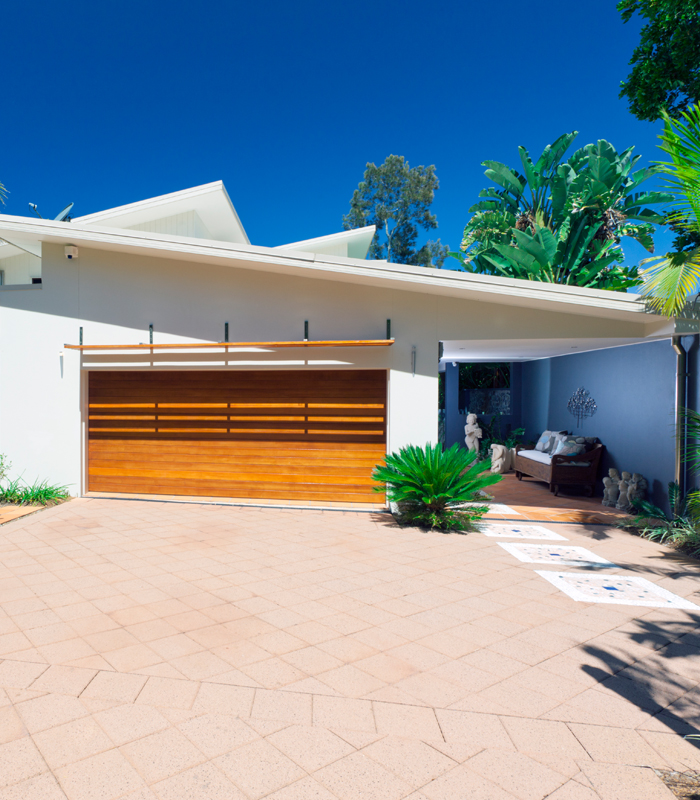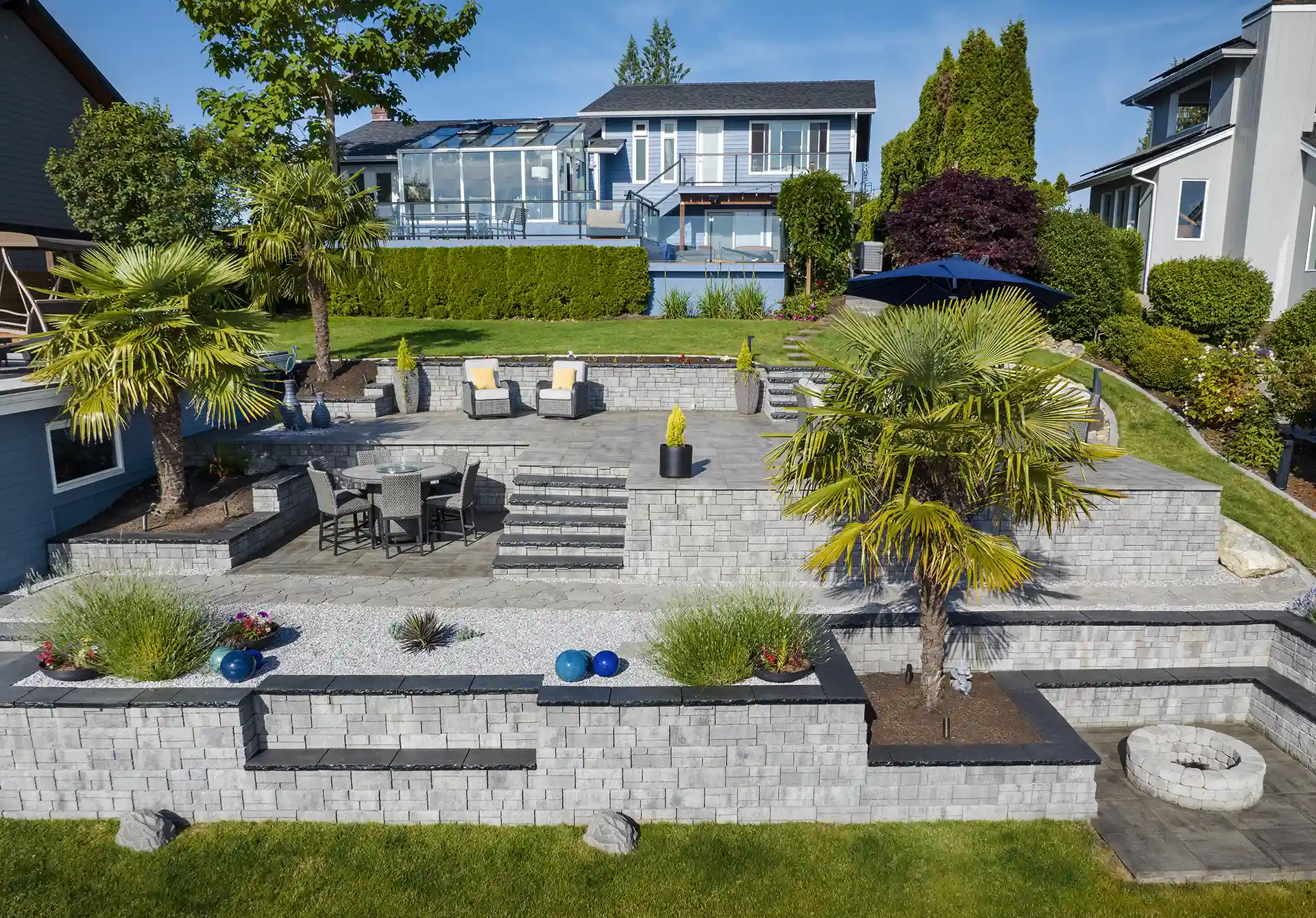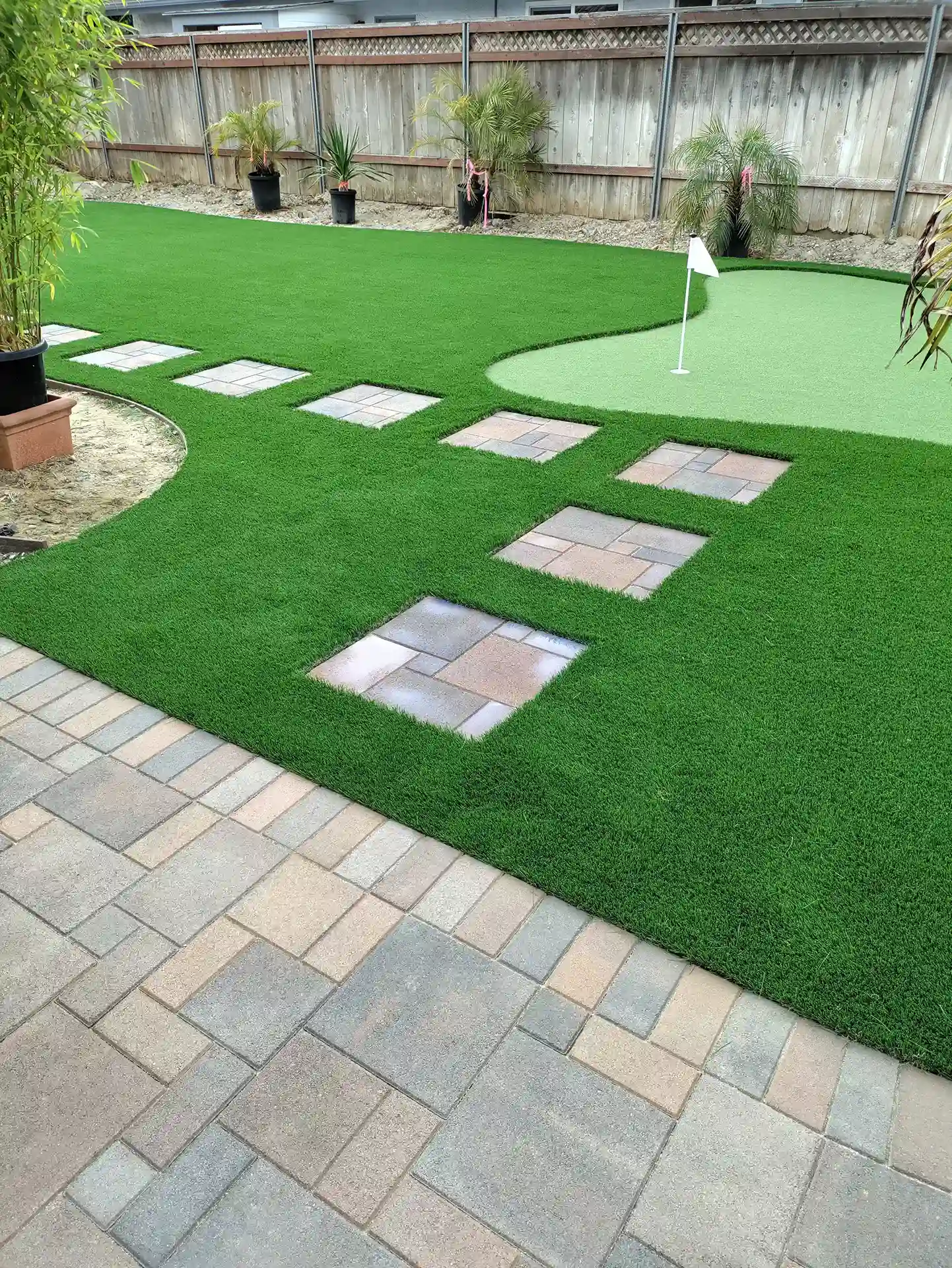Pavers 101: A Guide for Your Paver Installation Project

- What are pavers and why should you use them?
- How pavers compare to other outdoor living space solutions
- What are the different types of pavers used?
- What are the different kinds of pavers projects
- Is it difficult to maintain pavers?
- What to know before getting started on a paver project
- I’m ready to start, what’s next?
What are pavers and why should you use them?
Pavers are made from natural stone, brick, concrete, or composite materials. They are popular in places like San Diego, San Diego County, Ventura County, and nearby cities because they add a wow factor and curb appeal to properties.
- Pavers add beauty because they come in a variety of sizes, shapes, colors, and materials.
- They are very durable; they last for decades and will likely last for the rest of your life.
- Pavers are good for the environment because they help prevent runoff and allow water to seep back into the ground.
- The beauty and durability of pavers make them an affordable solution because they will also add value to your home.
- You will be able to recoup much of your investment in pavers if you ever decide to sell.
How pavers compare to other outdoor living space solutions
- Homeowners like pavers better than poured concrete because they look better, and you won’t have to rip out the entire project if there is a crack. If a paver cracks, you just remove it and replace it. If a concrete pad or driveway cracks, then a portion has to be cut out and repoured, or the entire thing has to be removed and redone.
- For driveways, pavers outperform oil-based asphalt solutions. Asphalt gets soft in intense heat, it cracks, and it fades over time. It doesn’t have the look, the appeal, or the feel of pavers.
- Ground-level decks built of wood or composite materials will cost about the same as a paver patio, but over time the deck will likely end up costing more. Why? Pavers require very little maintenance. Pressure wash them every year or so, and they will retain that beautiful look when they were first installed. Wood decks will need to be treated to protect the lumber and be stained. This process will need to be repeated over time, and the colors will fade.
What are the different types of pavers used?
When you decide to use pavers for your next outdoor project, you will discover they offer endless possibilities. Here are the different kinds of pavers and materials used:
Concrete pavers
Concrete pavers are quickly becoming the most widely used and one of the most diverse landscape materials available today. The diversity in materials is also further enhanced by the colorful selections and patterns that pavers can be found in.
Concrete pavers can be dyed to any color imaginable, making them flexible and desirable in more creative designs. This level of variety allows you to leverage the many colorful patterns, textures, and sizes in your unique project.
Natural stone pavers
Stone pavers are made from natural quarried stone. The common materials are travertine, limestone, granite, bluestone, marble, and many other varieties of stone. While stone pavers are much more expensive, the concrete paver alternative allows you the same look, quality, design, and flexibility in budget.
Brick pavers
Normally brick pavers are manufactured from clay, that is heat treated in extremely high temperatures for hardening. Although they come in a variety of sizes, you will most likely recognize them by their more common rectangle shapes. Brick pavers are known for their “aged” appearance, and are often desirable.
Composite pavers
Composite pavers are made using plastics and scrap tires to manufacture with less carbon and energy use in the manufacturing process. Composite may be an option depending on your overall objective and where you will be installing the pavers. One of the biggest advantages of using composite pavers is weight. Composite pavers weigh only 9 pounds per square feet as opposed to 4 times that amount of their stone alternatives. This makes composite pavers attractive when being used for rooftops or other areas where weight would be a factor.
What are the different kinds of pavers projects
How much do paver projects cost?
Is it difficult to maintain pavers?
What to know before getting started on a paver project
Will you do the project yourself
Will you work with a contractor?
Questions to ask if you decide to work with a contractor
- Is the contractor licensed?
- Is the contractor insured?
- Is the contractor bonded?
- Does the contractor offer a warranty on materials?
- Does the contractor guarantee the labor?
I’m ready to start, what’s next?
If you have decided to go with a contractor who specializes in paver projects, then we hope you will give Savon Pavers a call. We are a veteran-owned company that has helped homeowners like you realize their outdoor remodeling dreams since 2013.
Schedule a free consultation. We’ll talk about what kind of project you want and work up an estimate.




